what we offer
Our courses
Found a course you like? Click on the course for more information and to register.
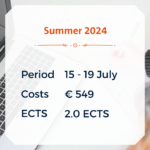
How do investors know if the price of a share is overvalued or undervalued? This course will teach you how to determine the expected value (price) of a share, applying fundamental analysis. It will integrate all corporate finance concepts, theories, metrics and models into specific valuation exercises that will help you make sense of all the finance-related topics normally covered in standard business education.
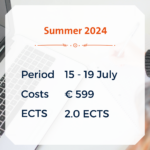
This course was designed for students who are interested in the aid/development sector as well as students who are interested in logical models that can be applied to project design. During the course, you will develop your project design, monitoring and evaluation skills as well as your analytical and presentation skills.
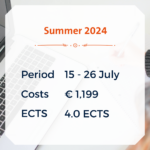
This course aims to, among others, identify new developments in the field of HRM, provide conceptual and practical frameworks for successfully managing people and teams in a global, cross-cultural context, and to develop the necessary insights and skills for international managers and professionals to operate successfully in a highly competitive, international context.
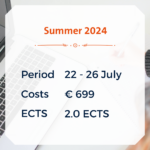
This course extends from a micro to a macro perspective to explore the relationship between marketing and society and the impact of markets and marketing practices in our current world. It encompasses elements of business & consumer rights, sustainability, social marketing, critical marketing and consumer society.
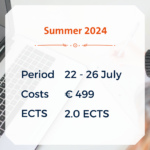
Unlock the secrets to successful investment management with this comprehensive course, now enriched with cutting-edge AI integration through ChatGPT. Whether you’re a seasoned professional or retail investor, this course delves into the latest investment strategies, performance evaluation techniques, and the transformative power of artificial intelligence.
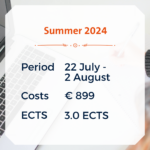
This course introduces participants to the gendered nature of global issues such as conflict, peacebuilding, and humanitarian action. More specifically, the course aims to develop and strengthen the awareness and understanding of women’s involvement in war, peace, and security-related issues.
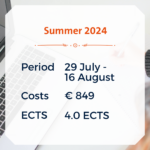
Many traders and investors use technical analysis, and it can be very profitable. In this course, you will learn various aspects of trading (such as indicators, chart patterns and candlesticks). Whether you are looking for a potential base to earn some extra income on the side or you are at the footsteps of a full-time trading career, this course will give you the necessary foundations to start your journey in the financial markets.
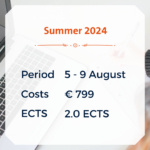
Why do few countries succeed while many fail? Why is development so hard? This course introduces you to the challenges of economic development. Based on a formulation of the problem (“What do we mean by development?”), you will be introduced to an overview of attempts to address the various challenges – both in theory and practice – with selective deep-dives.
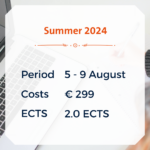
The world of policy and politics, governance and government can be murky with seemingly transparent and tangled connections. This course allows you to understand how a critical analytic and descriptive framework can help understand who is involved in the policy process, how it operates, and ultimately leads to a discussion about who is accountable.
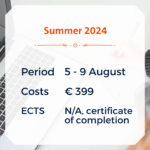
This course provides an insight into the attitude and behaviour of all nine personality types of the Enneagram model, and the way each type manages their communication, work ethics, reaction to leadership and how they can further develop their personality. This knowledge will be life changing as it will help you deal with your own defence mechanism and patterns, and find a way to cooperate with the other personality types.
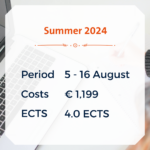
This course provides you with conceptual and practical frameworks for successfully managing people and teams in times of disruption (artificial intelligence, robotics, machine learning), and allows you to develop the necessary insights and skills to operate successfully in a rapidly developing environment. You will also develop plans and ideas for both personal development and the development of organisations.

This interactive and engaging workshop is designed to empower prospective UM students with soft skills that are crucial for academic success and personal growth. The workshop will focus on personal, social and study skills.
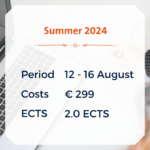
Relevant, evidence-based policymaking is key to achieving significant and sustainable change and fulfilment of the Sustainable Development Goals. In this course, you will be introduced to the fundamentals of public policy analysis tools that are commonly used throughout the world.
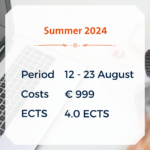
In the contemporary landscape, pivotal elements driving economic and societal transformations include the digital revolution and the shift towards environmental sustainability. This course delves into the design and implementation of industrial policies to drive digital innovation and green transition by combining theoretical concepts with evidence-based policies from diverse nations.
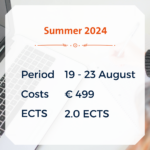
This course introduces you to Modern Monetary Theory (MMT) in the context of the Eurozone. The course explains money creation and its macroeconomic consequences, including the response to the pandemic, fiscal framework of the European Union and its recent reform, causes and consequences of inflation and unemployment.
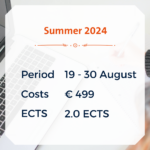
How do you make sense of the wide variety of perspectives in the media? For example, how can we interpret newspaper coverage of the War in Ukraine, tweets by Elon Musk, or Instagram posts on climate change, food, and migration? This course offers you academic yet practical answers to these questions. It teaches you the analytical skills to study the possible meanings of textual and visual media representations.
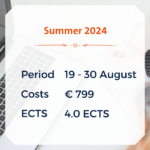
Wil je graag beter leren schrijven en jouw interviewvaardigheden verbeteren? Of droom je zelfs van een journalistieke carrière? Deze cursus is een mooie inleiding in effectief schrijven: van een pers- of nieuwsbericht, reportage, column, interview en wetenschapsjournalistiek tot het schrijven voor een website. De cursus is voor iedereen toegankelijk (van binnen én buiten de universiteit, jong en oud). Iedereen start op zijn eigen niveau.

Data analytics software such as the open-source programming environment R are becoming more popular. During this course, you will be introduced to three crucial aspects of data analytics in R through lectures and interactive, assignment-based tutorials: (i) basic objects and operations in R; (ii) control flow and programming in R; and (iii) working with data in R (management, analysis, and visualisation).

Data analytics software such as the open-source programming environment R are becoming more popular. During this course, you will be introduced to three crucial aspects of data analytics in R through lectures and interactive, assignment-based tutorials: (i) basic objects and operations in R; (ii) control flow and programming in R; and (iii) working with data in R (management, analysis, and visualisation).
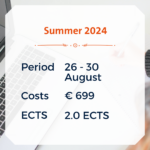
This course provides an overview of the crescent field of consumer neuroscience and explores the applications of neurosciences in different fields, such as neuroeconomics and neuromarketing. At the end of the course, you will be able to properly understand the potential and limitations of these applications, and develop innovative ways of using neuroscientific techniques in different contexts.
